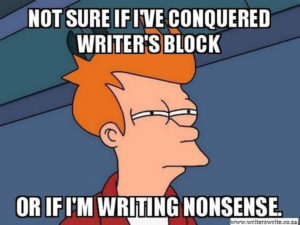 Any veteran copywriter has likely run into this problem time and time again. And for those new to the game, maybe it’s your first experience and it’s got you a bit worried: The dreaded writer’s block syndrome.
Any veteran copywriter has likely run into this problem time and time again. And for those new to the game, maybe it’s your first experience and it’s got you a bit worried: The dreaded writer’s block syndrome.
The good news is that it’s all too common in the writing world—you’re certainly not alone—and it’s just another part of your job that you have to work through. Thankfully there are some methods you can apply to your way of working that will help rid you of the problem.
If you’re trying to overcome writer’s block, here are some tips to cure your struggle and get the creativity flowing again. Let’s get started!
Navigate this guide with the following links:
What is Writer’s Block?
How do you know if what you’re suffering from is actually writer’s block? Maybe you just didn’t get enough rest last night, or you’ve got an upcoming vacation that you’re focused on. It could be any number of things. Let’s first define what writer’s block actually is, so you can begin to suss out whether or not you’re afflicted by the phenomenon:
According to trusty Wikipedia, “Writer’s block is a condition in which an author loses the ability to produce new work, or experiences a creative slowdown. The condition ranges from difficulty in coming up with original ideas to being unable to produce work for years.”
So, you think you’re experiencing writer’s block? Then you most likely are. But there are certain ways to tell. If you’re current state of mind applies to any of the following criteria, you’re most likely suffering from writer’s block:
- Fogginess: If you’re having trouble concentrating and feeling mentally foggy, you probably have writer’s block. This fogginess goes hand-in-hand with the following bullet point…
- Blanking Out: Have you been staring at a blank document or piece of paper for longer than a few minutes (or a few days, in most people’s cases)? The toughest part of writer’s block is the detrimental feeling of emptiness — no idea at all, and nothing being produced.
- No Inspiration: Content can get marred by your experiences in life, or lack thereof. When you lose the emotional fuel that keeps your creative engine running, you’ll have more difficulty producing great writing. Whether you’re a screenplay writer, science fiction author or SEO copywriter, lack of inspiration can lead to your creative downfall.
- Feeling Frustrated: It’s unbelievably aggravating when you can’t think of something to write. The thing is, frustration is a self-fueling cycle of negativity. The fewer ideas you come up with (or the more bad ideas you come up with), the more frustrated you feel and the harder it is to come up with other ideas. And the cycle continues as such, leaving your brain battered after a few rotations.
- Feeling Stressed: Whether you have journalistic deadlines to meet, are behind on a content calendar or have an important copywriting pitch coming up, high stress levels contribute to a stalled mental state.

Writer’s Block + Music: Make a Playlist (Or, Use Ours)
Great music can bring your mind back to a more relaxed state. Even while working, music has been shown to increase memory and productivity while lowering stress, activating both left and right hemispheres of the brain. While some may not be able to focus on highly complex novels while listening to prog-metal, it can get the creative juices flowing and help heighten your brain activity in preparation for creative activity.
Writer’s Block Playlist
If you have Apple Music, take a look at the playlist we created below as a jumping off point:
Writer Block Tips
1) Copywriters: Ask Yourself What the Problem Is

Grey Goose’s website pairs copy and imagery to associate vodka with an “uncompromising”, “spontaneous” way of life.
Problem solving and copywriting go hand-in-hand. In order to understand the core message that you should communicate, you need to understand the core problem that you’re solving. Take a look at this website, from Grey Goose Vodka — and do a deeper dive on what they’re actually selling. The beverage is present, but that’s not what’s jumping off the page.
People that are partying, celebrating – followed up with accompanying copy that feels inspiring. The use of verbiage like “spontaneous”, “unparalleled quality” and “made without compromise” evokes a feeling of youth and eternal happiness. And what does vodka/alcohol provide (albeit, temporarily)? Happiness, feelings of celebration, nostalgia, etc.
As you can see, their reputation for top-shelf vodka shines through in the headline. More importantly, with their body copy and video imagery, they’re advertising their product through the lens of an uncompromising, high-class lifestyle.
Need more help? Head to the Ultimate Guide to SEO Copywriting for a comprehensive run down on driving traffic through content marketing.
2) Don’t Be Afraid of a Blank Slate
When starting a new writing project, you may be sitting, staring at a blank screen, wondering where to start. The good news is that this can work in your favor. When we’re too involved in a given product or service, for example, we tend to get too wrapped up in the complexities of the given product or service. Instead, a blank slate gives us an opportunity to see the product – and its benefits – as clearly as possible.
3) Ask Why Someone Else Would Buy the Product/Service
This involves an out-of-body experience, but try your hardest to envision a few reasons why someone else would want to buy the product. After all, like Joanna Wiebe, author of Copyhackers, says, “Your job is not to write copy. Your job is to know your visitors, customers and prospects so well, you understand the situation they’re in right now, where they’d like to be, and exactly how your solution can and will get them to their ideal self.”
When you step outside of yourself, employ empathy and advance the thought process of your demographic, you can start to see the solution clearly.
Something that may help is to think of how people may be searching for content related to your site. How can you drive users who may not even know that you exist? With a strong keyword strategy, you can build content targeting user intents of all types – from top-funnel keywords to bottom-funnel through conversion.
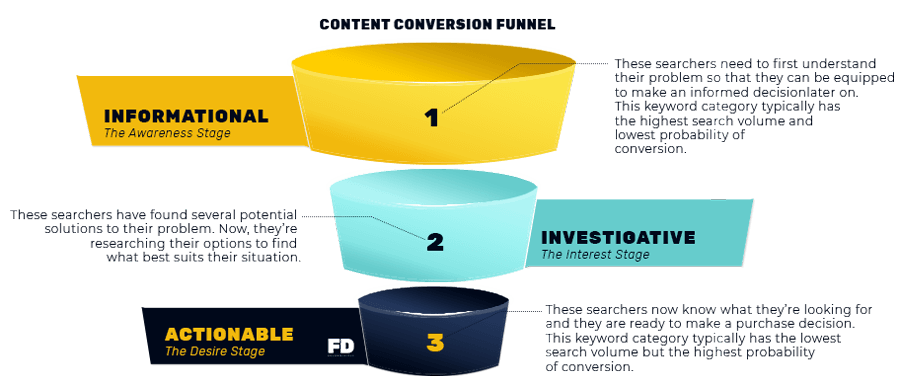
4) Ask Yourself Why You Would Want to Buy It
Ask yourself, “What would motivate me to purchase this product or work with this company?” Whether you’re the right demographic or not, you may uncover a new way of thinking about how to present key benefits.
5) Find New Brainstorming Exercises
Strong copywriting starts from a well-prepared foundation. This is something that you may have learned in any copywriting 101 course, but it bears repeating for those who haven’t heard of it. Brainstorming exercises are very useful, particularly when trying to home in on a certain problem. Finding the right criteria to put into content can mean the difference between a dozen website visits and a thousand.
Something that has always worked well for us is a mind-mapping exercise. This stream-of-consciousness way of brainstorming provides you with quick verbs, nouns, adjectives, etc. that you can inject into your copy or use as a jumping-off point. Simply start with a descriptor, problem or goal of the product or service. Circle it and draw a line from it. Write a related word, circle it and draw a line. Repeat the process, stemming multiple lines from each bubble to create a sort-of web-like parchment of ideas. Associate your thoughts freely throughout the page and try not to filter out any of your ideas. See an example of this brainstorming strategy below.
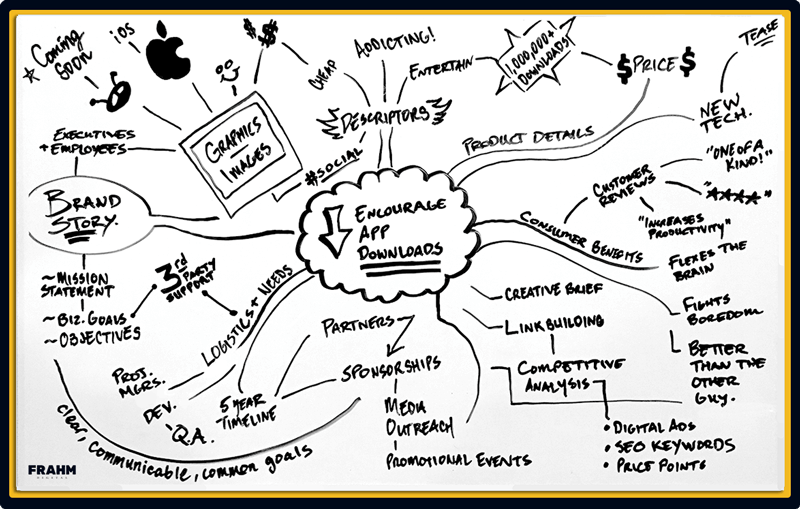
Are you trying to come up with bigger, better messaging? Look to these awesome copywriting brainstorming exercises, and make your website stand out.
6) Find an Escape from Self-Judgment
In 2016, the New Yorker wrote a lengthy review of research conducted into writer’s block in the 1970s. Besides the fact that the research proved writer’s block was a proven and treatable problem, the main solution the research suggested, was to escape internal self-judgment to overcome the problem:
“That, in the end, seems to be the main message of research into writer’s block: It’s useful to escape from external and internal judgment—by writing, for instance, in a dream diary, which you know will never be read—even if it’s only for a brief period. Such escapes allow writers to find comfort in the face of uncertainty; they give writers’ minds the freedom to imagine, even if the things they imagine seem ludicrous, unimportant, and unrelated to any writing project.”
7) Switch Up Mediums
 When you’re so wrapped up in writing, particularly if it’s your day-to-day job, it can start to lose its appeal. This can cause you to stall out on fresh ideas, stress about deadlines and prevent you from doing your duties. That’s why there’s so much value in switching up creative mediums. Try recreating some of your own stories through a painting, perfecting the art of photography with your smartphone or picking up a musical instrument. You could even try drastically switching up the type of content you’re writing. Are you a technical writer who powers through pages of schematics, instructions or Try writing a kid’s book or a sci-fi adventure movie screenplay. You’ll be surprised at where you can find inspiration hiding in the most unlikely of places, as long as you stretch your comfort zone.
When you’re so wrapped up in writing, particularly if it’s your day-to-day job, it can start to lose its appeal. This can cause you to stall out on fresh ideas, stress about deadlines and prevent you from doing your duties. That’s why there’s so much value in switching up creative mediums. Try recreating some of your own stories through a painting, perfecting the art of photography with your smartphone or picking up a musical instrument. You could even try drastically switching up the type of content you’re writing. Are you a technical writer who powers through pages of schematics, instructions or Try writing a kid’s book or a sci-fi adventure movie screenplay. You’ll be surprised at where you can find inspiration hiding in the most unlikely of places, as long as you stretch your comfort zone.
For example, our head of content, Mike Frahm, moonlights as an illustrator, as well as on the board of directors for local charity Cheap Laughs for Charity. He says, “Without these added creative outlets that allow me to experience and analyze subjects on a different plane, I would still be trying to write my biography for the first SEO agency I worked at. The crossover that occurs, which I am always completely surprised by, is something that really gets my mind working at full capacity.”
8) The Most Important Part of Writing is Rewriting
Even if you can’t muster up an idea you deem worthy, writing something, anything, on the page is of use. Write a story, stream-of-conscious text or personal blog, but don’t post it. Instead, conduct several rounds of edits, modifying the content with each pass. After a while, your words may not resemble the original version, but you can bet that it’ll be a much better piece, overall.
Are you stuck with your copy? Find more ways to fight deflated creativity with our post, SEO Copywriting Tips.
Inspiring Writer’s Block Quotes

“Writing about a writer’s block is better than not writing at all”
― Charles Bukowski
“Don’t waste time waiting for inspiration. Begin, and inspiration will find you.”
― H. Jackson Brown Jr.
“All writing problems are psychological problems. Blocks usually stem from the fear of being judged. If you imagine the world listening, you’ll never write a line. That’s why privacy is so important. You should write first drafts as if they will never be shown to anyone.”
― Erica Jong
“Breaking through writer’s block is like thinking out of the box: Both require an ability to imagine a world outside your four walls or rearranging them to get a better view.”
― Susan J. McIntire
“The wonderful thing about writing is that there is always a blank page waiting.
The terrifying thing about writing is that there is always a blank page waiting.”
― J.K. Rowling
“Who is more to be pitied, a writer bound and gagged by policemen or one living in perfect freedom who has nothing more to say?”
― Kurt Vonnegut
”Writer’s block is the biggest myth out there. The idea that you’re just lost for any possible words isn’t some vague illness that strikes people when they’re trying to be creative. You’re not missing the words; you’re missing the research. All ideas are a combination of preexisting ideas. So if you’re “out” of new ideas it’s probably because you don’t have enough old ideas to combine. Go back and read more. Or spend more time mapping out the book. Don’t show up to the keyboard without a plan and then tell the world you have writer’s block. You’re lying to us, and to yourself.”
— David Burkus
"Writer’s block is a fancy term made up by whiners so they can have an excuse to drink alcohol."
— Steve Martin, American actor
“Writer’s block is my unconscious mind telling me that something I’ve just written is either unbelievable or unimportant to me, and I solve it by going back and reinventing some part of what I’ve already written so that when I write it again, it is believable and interesting to me. Then I can go on. Writer’s block is never solved by forcing oneself to “write through it,” because you haven’t solved the problem that caused your unconscious mind to rebel against the story, so it still won’t work — for you or for the reader.”
― Orson Scott Card
“You can’t think yourself out of a writing block; you have to write yourself out of a thinking block.”
— John Rogers
"The scariest moment is always just before you start [writing]. After that, things can only get better."
— Stephen King
"I don't believe in writer's block. I'll get stuck, but being stuck, I'll still write a verse. If you know where you're going, you can always start from there and work your way back."
— Rakim
“So, before you begin the writing, be sure you know the purpose or mission or objective of every piece of content that you write. What are you trying to achieve? What information, exactly, are you trying to communicate? And why should your audience care?”
— Ann Handley
"What I try to do is write. I may write for two weeks ‘the cat sat on the mat, that is that, not a rat.’ And it might be just the most boring and awful stuff. But I try. When I’m writing, I write. And then it’s as if the muse is convinced that I’m serious and says, ‘Okay. Okay. I’ll come.'"
— Maya Angelou
Writer’s Block Memes
Looking for a laugh? Check out these writer’s block memes, and feel free to share them.
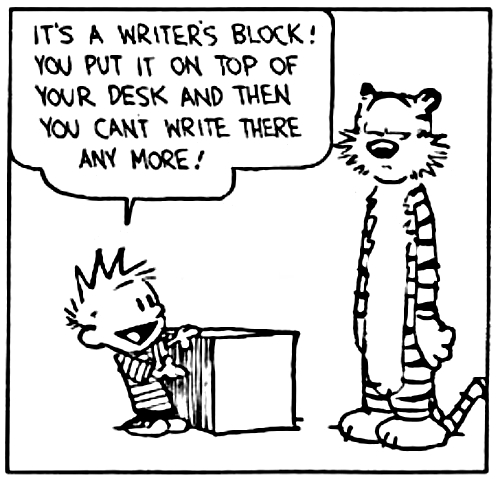
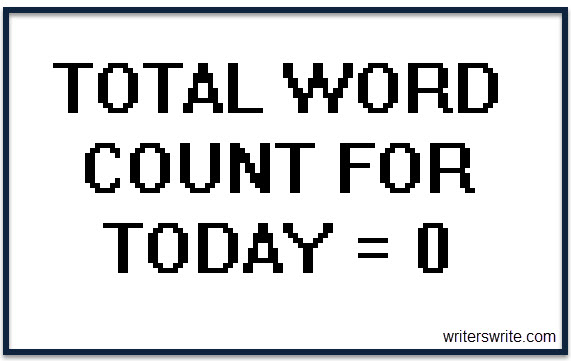
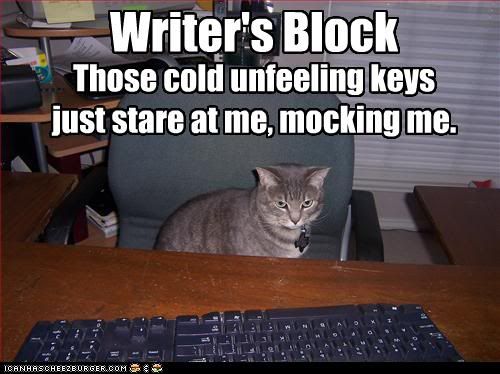
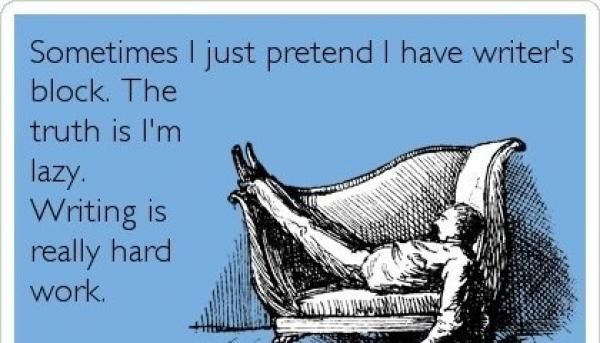
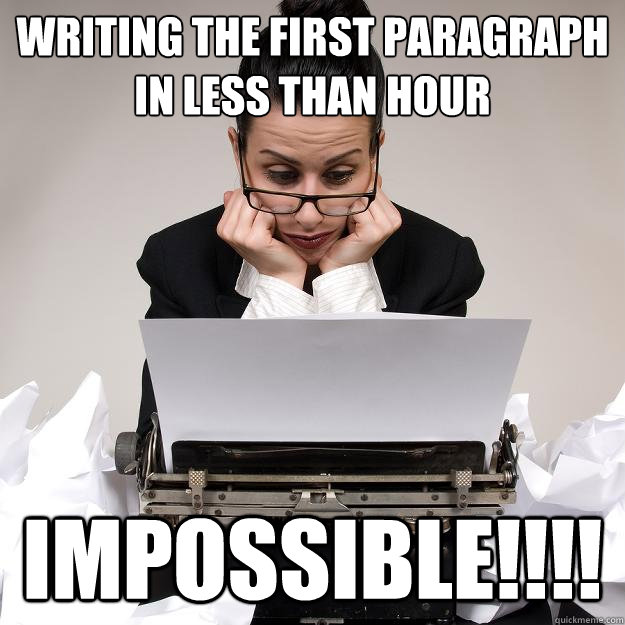
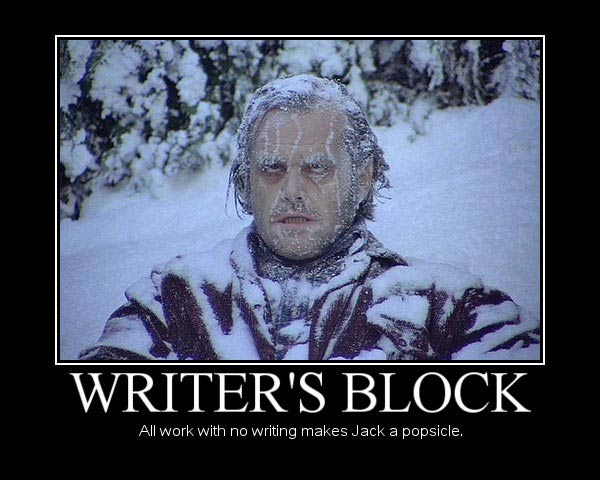
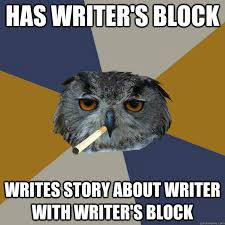
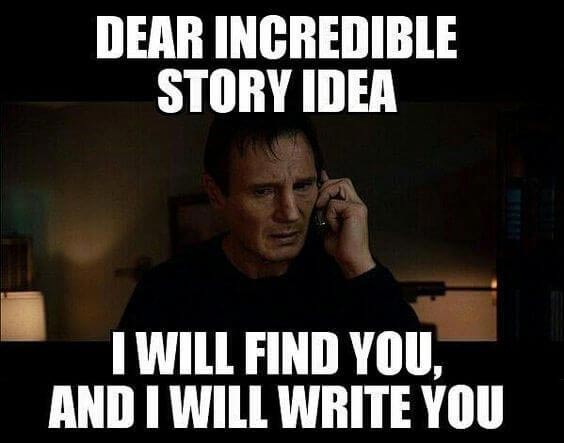
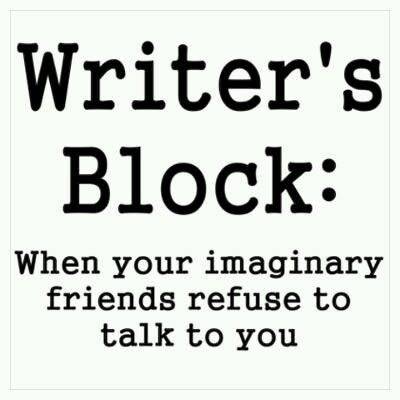
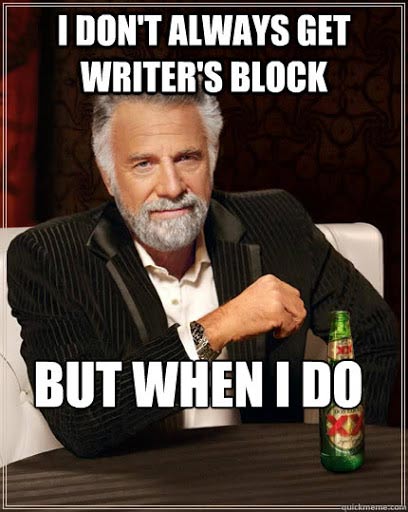
We put the UX in Luxury Web Design
A proper website design communicates your message through clear visuals, compelling copy and proper user experience. Whether you need a makeover, or something brand new, our team can supercharge your brand.
Click the button below to request a 100%-free website audit and uncover ways you can boost your business online.

